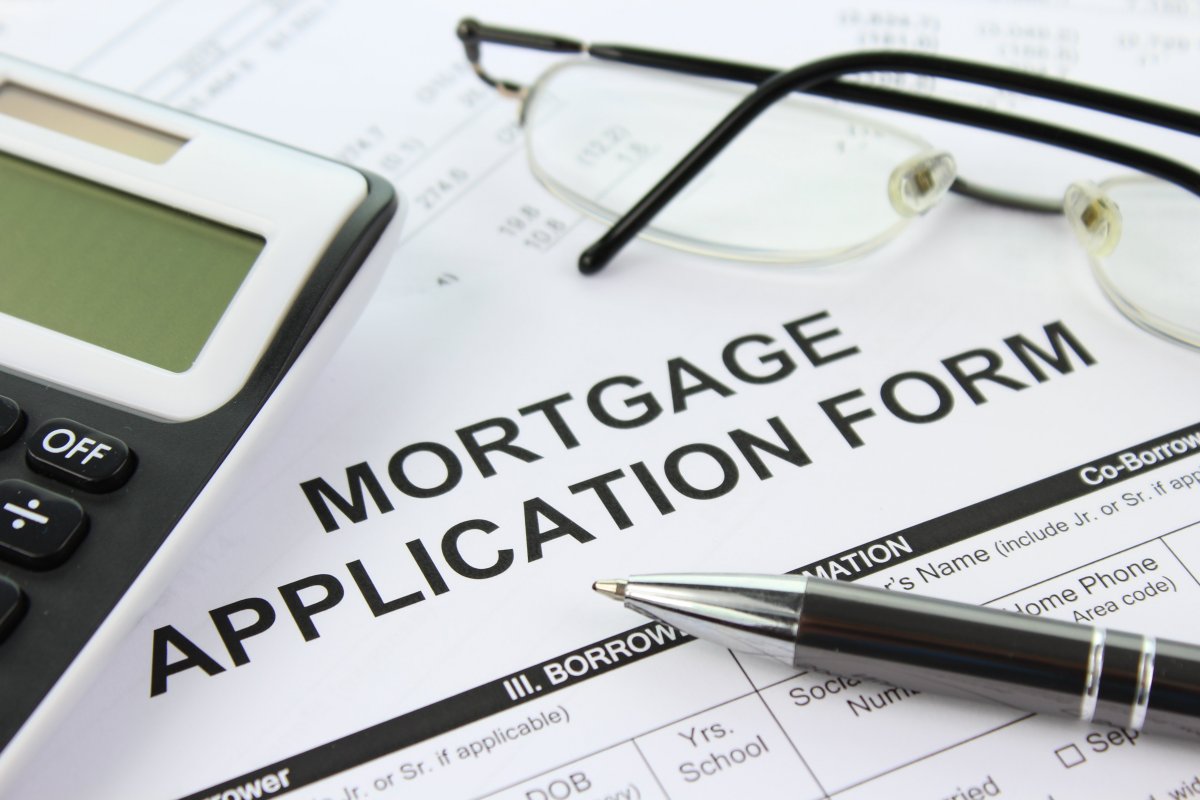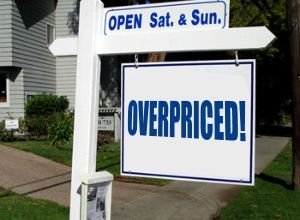Every buyer has a list of wants and needs when shopping for real estate.
No home is perfect though and there's always going to be some element of compromise. As the search progresses the question becomes, "What are your deal breakers and what are you willing to bend on?"
Some buyers are willing to stretch the geographical boundaries of their search and consider locations outside of their preferred area if it means getting the size of home they want. Others are willing to give up some outdoor space in exchange for a great interior.
What about a house that's haunted?
Are there actually buyers out there who would seriously consider purchasing a property that was known to have paranormal activity?
Apparently there are. I came across a 2008 article from the Toronto Star about a Meaford, Ontario home that's haunted. At the end of the article the listing agent says he's received calls from potential buyers who tell him that, "moving into a haunted house wouldn't bother them at all."
Seriously?!
Check out the article below...
———————————————————–
Is Meaford Dream Home Haunted?
Toronto Star | By Roberta Avery | October 25, 2008
Rachael Chapman is not easily spooked.
After a fashion modelling career that took her to New York and London, Chapman, 33, travelled the world as a flight attendant before moving to a remote rural area near the Georgian Bay community of Meaford, where she lived alone in an old farmhouse with her young son, Adrian.
"We were miles from anywhere, but I wasn't at all nervous," she says.
Then last year, just before Halloween, Chapman and her partner, David MacLeod, decided to buy a home together.
The older three-bedroom, two-bathroom home they purchased for $164,000 on a tree-lined street just a few minutes' walk from downtown Meaford has a large private backyard, so it appeared to be ideal for Adrian, now 13, as well as MacLeod's 12-year-old son, Brian, and the baby the couple was expecting.
"We thought we had found our dream home," she says.
The family has not lived in the house since May, although they struggle to make the mortgage payments while paying rent on another home, she explains, while reluctantly unlocking the door.
Chapman's self-confident demeanour disappears when she steps into the kitchen that feels icy cold, although it's a warm and sunny October day. The fully furnished house is neat as a pin with children's toys tidily stacked on shelves, an empty baby's crib and family keepsakes and photographs on display.
"We left our things behind because we were scared that we would take whatever it is that's here with us," she says.
Although she loved the home at first sight, there was something about it that made her ask the realtor if anybody had died in the home, she says.
"I was assured that no one had died here," she says.
There is a ground floor master bedroom and another room they decorated as a nursery for their baby, due in January. Upstairs are the two bedrooms she thought ideal for their two boys.
"Shortly after moving into the home, we began to notice strange happenings," Chapman says.
At first the couple tried rational explanations for the loud banging noises from upstairs, which happened at times when all the family and the pets were downstairs.
"We explored the possibility that animals had taken refuge in our attic or that branches could have been rubbing against the house or rooftop, but there was no evidence of any such cause," she says.
The boys were ill at ease and refused to enter certain rooms. One said he woke to a feeling that he was being choked.
"We chalked it up to the children having vivid imaginations and talked to them at length about the inappropriate nature of their stories," she says.
Things began to escalate: appliances and lights turned themselves on and off, things went missing and turned up in strange places. While they slept, a plaster column in the kitchen smashed as if hit by a baseball bat, and also while they slept, their phones called people.
Although they are not religious, in May they asked a minister to bless the house, but after he left, events escalated further. Their cellphones started beeping, indicating there was no signal. Chapman felt that she was being watched and had an overwhelming sense of foreboding.
That night Chapman took Adrian and then-five-month-old Locklyn and went to stay with her mother, who lived a few blocks away. MacLeod initially refused to join them, but just a few hours later, when the furniture started moving and he heard what sounded like a woman screaming when he picked up the telephone, he also left, she says.
Since they moved, neighbours have called them to report lights going on and off in the securely locked home and on one occasion, the hard-wired fire alarms started beeping, although they were disconnected and didn't have battery backup, she says.
Chapman expected her story to be dismissed as unbelievable, but when she started asking around town, she soon discovered the house had a reputation for strange occurrences dating back decades.
"It seems that everyone knew but us," she says.
Chapman's research at the Grey County records office indicates that at least two men died in the home, one who suffered from sleep apnea and choked to death in his sleep, and another who committed suicide in the living room. The county paper records, which go back to 1945, indicate the house has changed hands numerous times, with people rarely staying for more than 12 months, she says.
"That's really odd, because in 1945 people usually bought a home and lived in it for life," she says.
It doesn't take long to discover that, just as Chapman asserts, the house does have a reputation for being haunted. A few inquiries at the local coffee shop turned up several tales of the unexplained, relating to the house, but no one wanted to be quoted.
Meanwhile, Chapman and MacLeod have put the house up for sale for $184,900 in the hopes of breaking even after legal and realtor fees, but so far, prospective purchasers have lost interest once the realtor advises them that the house is haunted, Chapman says.
Legal expert and Star columnist Bob Aaron says that with the exception of Quebec – which has laws requiring disclosure of property stigma – rules for the rest of Canada are weak.
"In general, the rule is caveat emptor, or buyer beware," he says.
Chapman and MacLeod's realtor, Murray Petch, a broker at Wilfred McIntee & Co. Ltd. in Meaford, confirms in a telephone call that he advises potential purchasers there have been reports of paranormal activity in the house.
"I wasn't aware of it, but now I know, I'm obliged to tell," he says. "But it's okay, there are people who say moving into a haunted house wouldn't bother them at all."
If you’re thinking of making a move and would like to know how we can help, feel free to contact us for more info.
 I’ve been a realtor for over 10 years now, and I can honestly say that I’ve never seen as many WTF sale prices as I saw last week.
I’ve been a realtor for over 10 years now, and I can honestly say that I’ve never seen as many WTF sale prices as I saw last week.
 If you haven't already heard, the Canadian Department of Finance made an announcement earlier this month outlining a handful of changes that will have an impact on the mortgage/housing market.
If you haven't already heard, the Canadian Department of Finance made an announcement earlier this month outlining a handful of changes that will have an impact on the mortgage/housing market.
 More than once over the course of these past few months, I've seen a house come on the market and sell for significantly more than what it was unsuccessfully listed at back in the fall/winter.
More than once over the course of these past few months, I've seen a house come on the market and sell for significantly more than what it was unsuccessfully listed at back in the fall/winter.



 Back in August I wrote about the sellers who received 7 competing offers on offer-night, and said "no" to all of them (
Back in August I wrote about the sellers who received 7 competing offers on offer-night, and said "no" to all of them ( What happens when a seller receives 7 competing offers on their house, only to reject them all and then relist the next day at a much higher price?
What happens when a seller receives 7 competing offers on their house, only to reject them all and then relist the next day at a much higher price? I've mentioned in previous blog posts that the spring market shifts into its highest gear right after the Easter long weekend (read those posts
I've mentioned in previous blog posts that the spring market shifts into its highest gear right after the Easter long weekend (read those posts  Earlier this week a gorgeous house popped up for sale in the west end.
Earlier this week a gorgeous house popped up for sale in the west end. If you want to get the best price for your home, should you:
If you want to get the best price for your home, should you: I was booking showings for a client the other day and one of the properties we wanted to see was restricting showings to Thursday evenings only, 6:00 - 9:00pm.
I was booking showings for a client the other day and one of the properties we wanted to see was restricting showings to Thursday evenings only, 6:00 - 9:00pm. As a realtor, I have access to up-to-the minute updates on mls. And I'm checking-in periodically throughout the day, scanning the hot listings for anything that might be a good match for my buyer clients.
As a realtor, I have access to up-to-the minute updates on mls. And I'm checking-in periodically throughout the day, scanning the hot listings for anything that might be a good match for my buyer clients. With so many new condo buildings popping up, great views are getting much harder to come by. Heck, even decent views are getting harder to come by.
With so many new condo buildings popping up, great views are getting much harder to come by. Heck, even decent views are getting harder to come by. Last month I wrote a blog post about multiple offers (read it
Last month I wrote a blog post about multiple offers (read it  There was quite a bit of talk in the media this past fall & winter about a real estate bubble and an imminent correction.
There was quite a bit of talk in the media this past fall & winter about a real estate bubble and an imminent correction.
